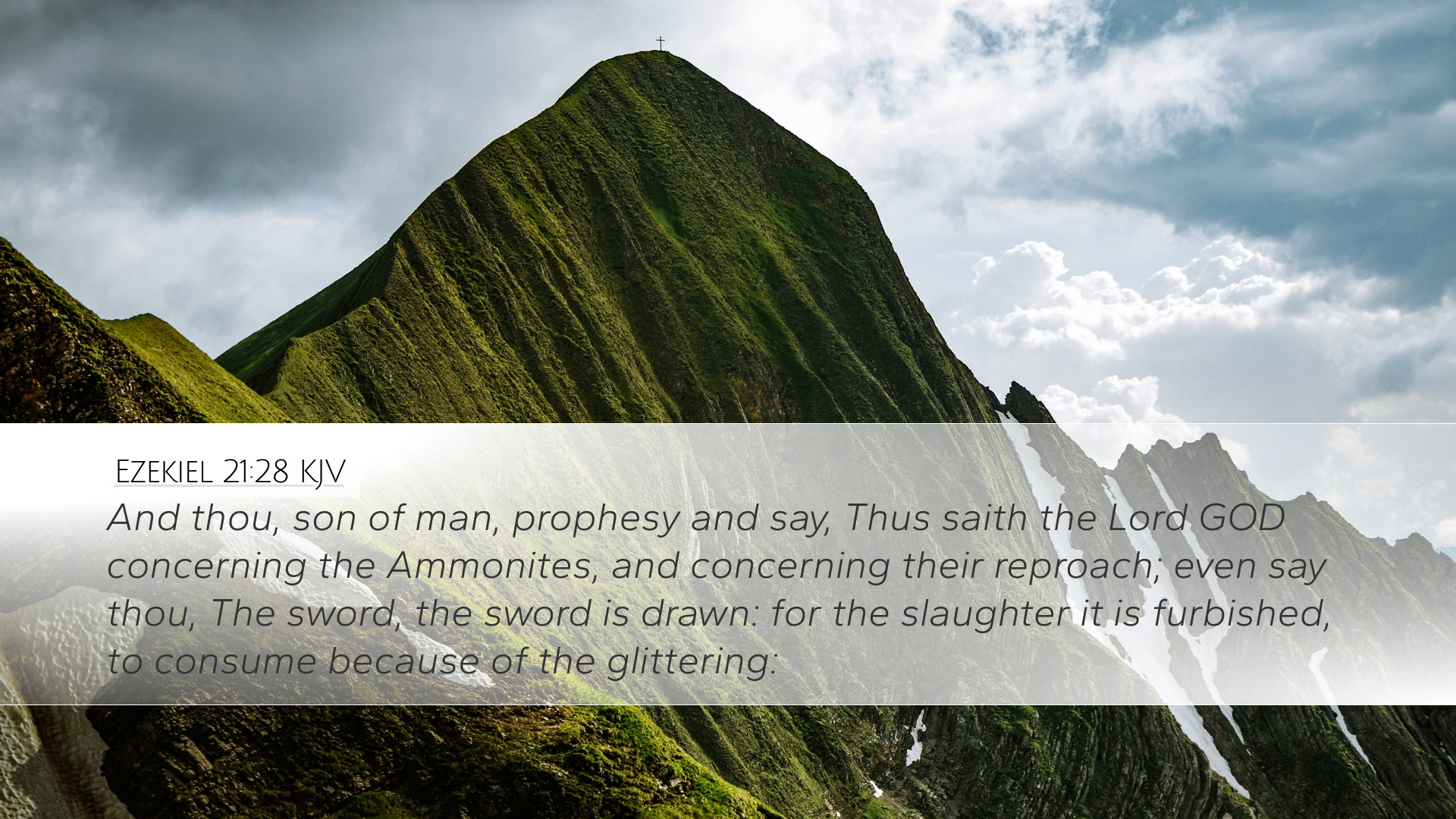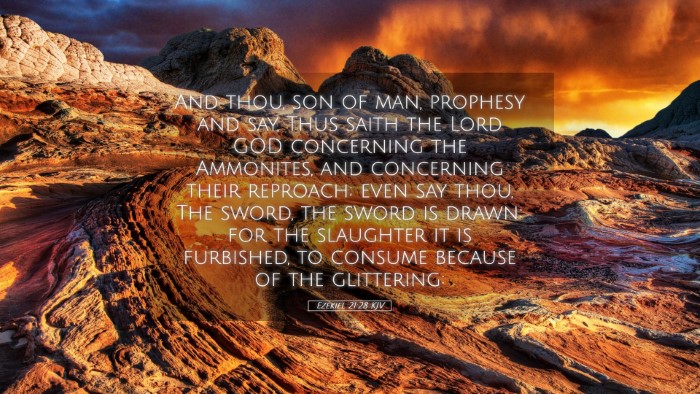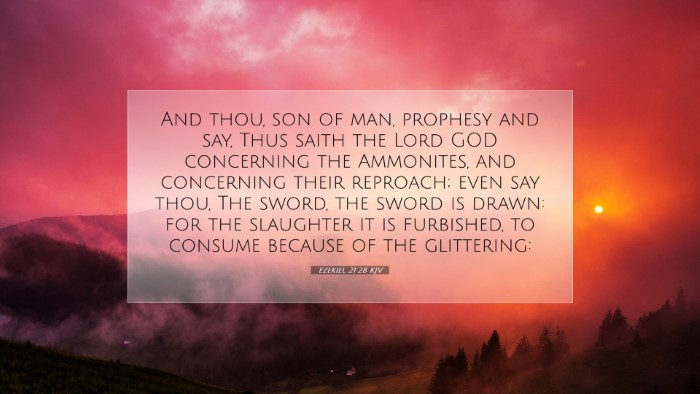Ezekiel 21:28 - Commentary Overview
Verse Text: "And thou, son of man, prophesy and say, Thus saith the Lord God concerning the Ammonites, and concerning their reproach; even say thou, The sword, the sword is drawn: for the slaughter it is furbished, to consume because of the glittering:."
Contextual Background
The Book of Ezekiel is known for its complex imagery and prophetic declarations, often focusing on the upcoming judgments against Israel and surrounding nations. In chapter 21, the prophet delivers a message directly relating to the Ammonites, who were longstanding enemies of Israel. This verse continues the theme of impending judgment that permeates the entire chapter.
Key Themes and Insights
-
The Function of Prophecy:
Prophecy serves not only to foretell future events but to invoke a sense of urgency and calling for repentance. Here, Ezekiel is instructed to speak to the Ammonites, highlighting that God's judgment is imminent. Matthew Henry emphasizes the role of the prophet as a mouthpiece to convey divine displeasure, illustrating the seriousness of their situation.
-
The Symbolism of the Sword:
The "sword" is a recurring symbol of judgment and war in Biblical literature. Albert Barnes notes that the sword represents both the instrument of divine judgment and the inevitable destruction of the rebellious nations. The sharpness and readiness of the sword serve as a metaphor for God’s impending wrath against the unrepentant.
Commentary Breakdown
Matthew Henry's Commentary
Henry underscores the severity of divine judgment against the Ammonites. The prophet’s call to prophesy implies not only warning but an invitation for the people to consider their actions. The imagery of the furbished sword suggests meticulous preparation for judgment, invoking the idea that God’s readiness to act reflects His justice.
Albert Barnes' Notes
Barnes outlines the significance of addressing the Ammonites directly. He poignantly notes that the context of their reproach against Israel would be met with divine retribution. The repeated mention of the sword's readiness serves as a stark reminder of the consequences of their mockery and disdain toward God’s chosen people.
Adam Clarke's Commentary
Clarke expands upon the historical implications of the Ammonites' actions, exploring their consistent opposition to Israel throughout history. He describes how God's judgment through the sword is both a physical and spiritual awakening, calling nations to recognize their standing before the Lord. Clarke eloquently addresses the nature of God’s justice intertwined with mercy, illustrating how judgment is a pathway to returning to righteousness.
Theological Implications
The message found in Ezekiel 21:28 is relevant to contemporary audiences. It presents a duality of God's nature: His justice and His holiness. For pastors and theologians, this verse serves as a potent reminder that God does not overlook transgressions. The theological implications prompt discussions on the nature of divine judgment and grace, challenging believers to consider their relationship with God.
Practical Applications
-
Reflect on Accountability:
Just as the Ammonites faced the consequences of their actions, modern Christians are called to live in awareness of God's standards. This verse encourages self-examination and accountability within the faith community.
-
Embrace the Call to Repentance:
The prophetic urging in this verse can be a catalyst for personal and communal repentance. It challenges congregations to maintain a posture of humility before God, seeking forgiveness and transformation.
Conclusion
Ezekiel 21:28 is a vivid reminder of the reality of divine judgment against those who oppose God’s ways. Through layers of prophetic metaphor, we uncover deeper truths about accountability, the nature of God, and the call to righteousness. The combined insights from Henry, Barnes, and Clarke equip pastors, students, and theologians to engage deeply with the text, allowing it to inform their understanding of God's character and His expectations for His people.


